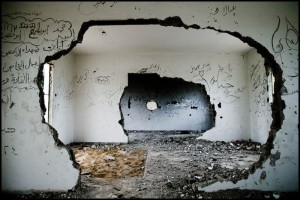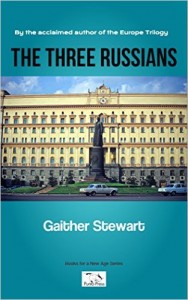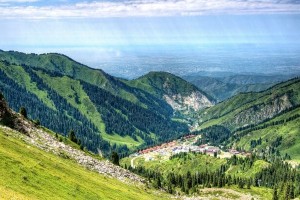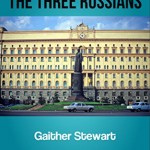
by Gaither Stewart
Punto Press, New York
Review by JP Miller
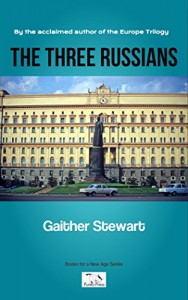 It may seem strange to begin a review of a “spy story” by noting the stalwart morality of an apparently irredeemable and ruthless spy. But, Stewart’s creation of Misha Nikiforov, ex KGB and Russian successor to his influential and unforgettable Anatoly Nikitin of the novel, The Trojan Spy, and a spiritual brother of Oleg in the accompanying story in this volume, Shadows Beyond the Wall, is a quixotic and complicated character. He is unbound by simple ethical aims or religious righteousness. He is a hard-hitting yet philosophical man with his own set of morals that are somewhat Dostoevskian … or simply Russian, if you like. These self-made characteristics and responsibilities serve his ultimate goal of virtue in a world lacking even a drop of honor. Thank God for spies.
It may seem strange to begin a review of a “spy story” by noting the stalwart morality of an apparently irredeemable and ruthless spy. But, Stewart’s creation of Misha Nikiforov, ex KGB and Russian successor to his influential and unforgettable Anatoly Nikitin of the novel, The Trojan Spy, and a spiritual brother of Oleg in the accompanying story in this volume, Shadows Beyond the Wall, is a quixotic and complicated character. He is unbound by simple ethical aims or religious righteousness. He is a hard-hitting yet philosophical man with his own set of morals that are somewhat Dostoevskian … or simply Russian, if you like. These self-made characteristics and responsibilities serve his ultimate goal of virtue in a world lacking even a drop of honor. Thank God for spies.
The Three Russians, Stewart’s most recent and among his best stories, is in a way set in his own past. After years of European books and stories, he returns to Asheville, North Carolina where he grew to be a man and wrote his first book. The stage is set as Misha meets his friend, Preston in Asheville and tells him of the recent emigration of Russians to Asheville. They are old friends from long ago days in Russia and embark on a journey that begins benignly enough before racing together to stop a terrorist plot much like 9/11. After the CIA recruited Preston to follow his friend Misha to Asheville and uncover the threat to the US, the entire enterprise quickly unfolds. There is no single terrorist or terrorist group but a realization that an entire network of men from different worlds with different capabilities for diverse reasons intends to strike a massive blow at an imperial USA.
And, here we come to the point. The US government and its various agencies, blinded by an eagerness to maintain control over its people, forgoes a deep investigation, and instead creates a simple plot masterminded by a created foreign enemy to strike at the purity of America. Blinded by US exceptionalism, internal politics and inept operatives the government cannot understand that they have created a litany of enemies and have lied to the US public so long that there is no room for the truth. There is only the marketplace of superficialities.. Obviously, this brings up questions of who facilitated 9/11, the Iraq war, Afghanistan and other domestic and foreign terrorist acts as the US government continues to string along this lie—we are under attack from outside states and groups that strike at US purity and way of life..
This lie perpetuates fear and control over the populace which provides an excuse for perpetual war, broken bodies, and endless arms manufacturing. Misha puts it simply. “Washington will never swallow that. They want a specific clear reasonable and identifiable enemy. That is Al-Qaeda…and countries like Iraq.”
Besides being an entertaining and wild ride with spies and dangerous characters, The Three Russians is a morality tale which is an education to the reader. Unfortunately, the lessons from this story are anathema to most of US society. War is peace. Xenophobia is the answer. They are bound so tight into a ball of television produced lies from the government that they simply cannot grasp the obvious truth—the truth that control by an oligarchy is dependent on creating an outside threat.
As Misha leaves behind his own past and the Cold War, he reflects on the current political world climate–“Now they say the global market will fix everything. But I don’t believe it. There are still as many injustices as ever in the world and no alternatives.”



